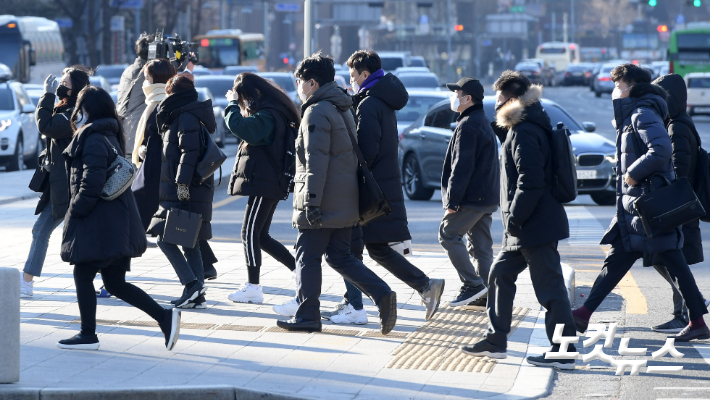(BFM Bourse) – The French biotech specialist in the treatment of food allergies DBV Technologies takes off 30% Friday morning, to reach a high for six months on the stock market. Discussions with the FDA made it possible to clarify the steps to finally obtain approval for Viaskin Peanut.
The price of DBV Technologies is certainly far from the peaks it reached in 2017 when it was in its prime, but on Friday it experienced a significant rebound after the new collapse last year (-77%). Around 10:15 a.m., the action took off 32.13% to 8.08 euros, the highest level since July 2020, following the announcement of regulatory progress on its Viaskin Peanut patch, developed to treat peanut allergy in children.
Last August, the Food and Drug Administration (FDA) refused to authorize the marketing of the product via a Complete Response Letter or CRL (“Full Response Letter” according to the terminology used by the agency since 2008 to designate a negative response). In particular, the US Medicines Agency had been concerned that the effectiveness of the treatment might be reduced if the patch did not adhere sufficiently to the skin – a risk that had not previously been shown in trials. in real practice. DBV had fallen 37% in one session when the refusal was announced.
In the process DBV had asked the agency for a meeting to discuss the latter’s comments as well as its requirements in terms of additional clinical data that may be necessary to support the resubmission of the registration file. On Thursday evening, the biopharmaceutical company said it had received the FDA’s responses to questions in its meeting request.
No resumption of studies from zero
DBV Technologies believes that “the comments received from the FDA provide a clear regulatory approach for the future.” In its discussions with the agency, the firm believes it has proposed solutions that could address the main concerns identified by the FDA in the CRL. “The FDA shared DBV’s position that a modified Viaskin Peanut patch should not be considered a new entity, provided the occlusion chamber of the current Viaskin Peanut patch and the peanut protein dose of 250 µg (about 1/1000 of a peanut) remain unchanged and retain the same performance as before, ”DBV said. Good news, because if the planned modification of the patch had been considered to result in a new entity [pharmacologique] it would have required starting over from scratch.
In order to confirm the equivalence of efficacy between the existing patches and the modified version, the FDA requested an evaluation comparing the absorption of the allergen (peanut protein) between the patches in children aged 4 to 11 years with allergies. with peanuts. The agency also recommended that a clinical trial to monitor safety and adherence in the target patient population be carried out over a relatively limited period of six months.
The new patch prototypes defined before the end of March
DBV Technologies plans to discuss with the FDA at a later date the details of a new validation study on human factors, as well as additional data on the chemistry, manufacturing and control (CFCs, another point previously raised by the agency).
The group led by Daniel Tassé intends to stop the choice of prototypes of modified patches during the first trimester and submit to the FDA the protocol of the trial aimed at verifying the good adhesion of the patch during the second trimester.
“We look forward to working with our investigators, clinical trial sites and key partners to further develop our investigational product Viaskin Peanut,” said Pharis Mohideen, medical director of DBV. “Everyone at DBV remains very committed to the possibility of bringing this innovative treatment option to patients and their families.”
Guillaume Bayre – © 2021 BFM Bourse
Are you following this action?
–
Receive all the information on DBV TECHNOLOGIES in real time:
–
–
–
–


